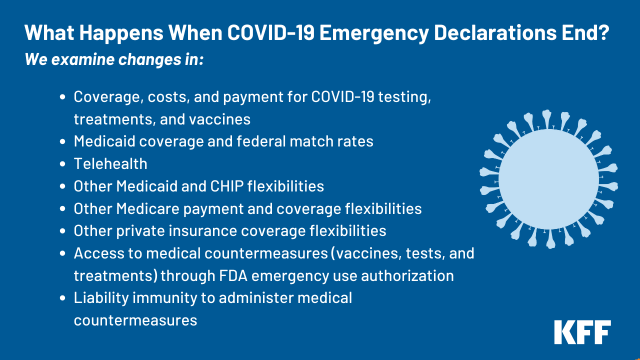The World Health Organization (WHO) declared on Friday that Covid-19 is no longer a global health emergency; a decision reached after the International Health Regulations Emergency Committee discussed the pandemic at its 15th meeting on the virus. WHO Director-General Tedros Adhanom Ghebreyesus confirmed that the public health emergency of global concern, or PHEIC, declaration should end, stating that “for more than a year the pandemic has been on a downward trend”. However, while Covid-19 remains a threat, the virus is evolving, and the WHO has said it would not hesitate to convene another emergency committee meeting and declare a global health emergency again if there was a significant rise in Covid-19 cases or deaths in the future.

A PHEIC creates an agreement in which countries abide by the WHO’s recommendations for managing the emergency. Each country then makes its own public health emergency declaration, declarations that carry legal weight. Countries use them to marshal resources and waive rules to ease a crisis. However, Dr. Maria Van Kerkhove, WHO’s Covid-19 technical lead and head of its program on emerging disease, said that the emergency phase of the Covid-19 crisis is over, but the disease is “here to stay” and the coronavirus that causes the disease is not going away anytime soon, as cases are expected to continue to occur epidemiologically.
Dr. Mike Ryan, the Executive Director of WHO’s Health Emergencies Programme, noted: “There’s still a public health threat out there, and we all see that every day in terms of the evolution of this virus, in terms of its global presence, its continued evolution and continued vulnerabilities in our communities, both societal vulnerabilities, age vulnerabilities, protection vulnerabilities, and many other things”.
While the pandemic appears to be decreasing, Covid-19 cases and deaths remain significant, with more than 765 million confirmed cases worldwide and nearly seven million people dead. Europe has had the most confirmed cases overall, but the Americas have reported the most deaths, approximately 1 in 6 of all total deaths being American. Cases reached their highest rate in December 2022 as Omicron swept the globe, hitting the Western Pacific significantly. However, billions of vaccine doses have already been administered globally, and deaths have remained far below previous peaks.
Tedros has emphasised that Covid-19 “has left and continues to leave deep scars on our world” and that these should be a permanent reminder of the potential for new viruses to emerge with devastating consequences. Tedros also highlighted that “one of the greatest tragedies of Covid-19 is that it didn’t have to be this way. We have the tools and technologies to prepare for pandemics better, detect them earlier, respond to them faster, and communicate their impact. But globally, a lack of coordination, a lack of equity, and lack of solidarity meant that those tools were not used as effectively as they could have been”. He went on to stress the importance of developing better preparedness and coordination for any future global health emergencies.
There remains a global disparity in vaccine distribution, with billions of people unvaccinated and at risk of contracting Covid-19, and officials continue to warn against complacency and the need to maintain vigilance in managing the pandemic. Van Kerkhove said “While we’re not in the crisis mode, we can’t let our guard down. Epidemiologically, this virus will continue to cause waves. What we are hopeful of is that we have the tools in place to ensure that the future waves do not result in more severe disease, don’t result in waves of death and we can do that with the tools we have at hand”.
While Covid-19 is no longer considered a global health emergency by the WHO, the virus remains a threat, and the need for preparedness, collaboration, and vaccine distribution to manage future waves of the pandemic are crucial. As the world struggles to emerge from the pandemic, officials warn that complacency is not an option and that vigilance is needed to protect lives, reduce transmission, and prevent future pandemics.
